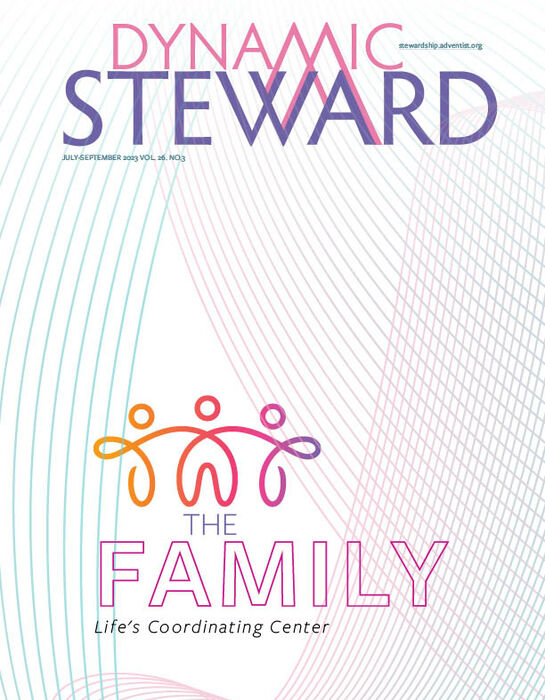Every Setback Is an Opportunity for a Comeback
In 2 Kings 4 and 8, there is a story of a Shunammite woman who went through a series of setbacks in her life. As a recap, Elisha’s prophecy was that she would have a son. She receives a son, but subsequently, the same son that was promised unexpectedly dies. But miraculously, through the power of God, the prophet brings her son back to life. Similarly, Luke 7:11–17 shares a story of a woman whose son died. While she is in grief, Jesus arrives and brings the son back to life. Between these two narratives, there are several lessons we can learn about overcoming financial setbacks as a family.
Establish Effective Communication
To have a positive relationship, you need to have effective communication. The Shunammite woman’s communication with Elisha and the woman from Nain’s communication with Jesus demonstrate the importance of communicating your needs. When dealing with a financial setback, one of the worst things someone can do is not speak about it. Ignoring the issue will not resolve the problem. Whether it is the church budget, an organizational financial challenge, or a family or individual challenge, the first step is having an open dialogue about the challenge.
Additionally, it is important to create a safe space, that is, create an environment where people can feel comfortable in dialogue and share their challenges without fear of judgment. What we do not find in either story of these women is them being blamed. When discussing financial setbacks, focus on finding solutions rather than assigning blame. Additionally, a key component is actively listening. There was a time in my ministry when a person shared with me that they were having challenges meeting monthly financial obligations and were uncertain if they should return their tithe. This could have been a moment to interject all the biblical passages concerning tithe and offering. But through prayerful active listening, I realized I should direct them to passages of scripture that showed them how God was concerned about people’s spiritual and economic plight and could meet those needs. This individual was communicating a bigger financial challenge, and it was essential to help direct them to financial resources to help them navigate. In many of our churches, people are taught how to return the 10%, but they are struggling to manage the 90%. What began as a concern to be faithful in a little, resulted in the person learning how to manage more of what God had given them. Though they managed the church’s finances, they did not have a personal budget. Having effective communication and active listening resulted in a change of their approach to stewardship and being accountable for their goals.
Furthermore, an important idea is setting goals and discussing values. Families ought to discuss what they are hoping to accomplish and identify what matters to them. Everyone has different needs, and we must remember that, as leaders, people want solutions to their specific problems.
Trusting in Divine Providence
In 2 Kings 8, the Bible shares that God has called for a famine and that the prophet instructs the Shunammite woman to go away with her family and stay wherever she can because the famine will last seven years. This divine revelation about hard economic times led her and her family to make the decision to relocate to the land of the Philistines. Notice that God does not tell her where to go but simply provides divine revelation on what will be. The decision is up to them on how they are going to proceed. Often, when we consider the plight of families and their finances, we must realize that the choice is ultimately up to them. It is essential to manage our resources, but we must also direct people back to the Source. We can provide prayer, instruction, and guidance, but ultimately, people must make their own choices. Following God and experiencing change often means making sacrifices, and in realizing their present situation or anticipating future hardship, families may need to make difficult choices. Some families may need to downsize, change schools, unsubscribe from unnecessary expenditures, relocate to low cost of living areas, or increase their income by working multiple jobs. Sometimes, this may result in them being less available and reallocating their time and responsibilities. We must prayerfully provide information and allow people to make their own choices.
Preparing for the Unexpected
Trusting divine providence does not mean that families may not experience loss. This means that we must be prepared for the unexpected. For the woman of Nain, not only did she lose her son, but she has been in this situation of loss twice since she was a widow. The first time, her husband died, and the second time, her son died. In this life, we may experience loss of the life of a spouse, children, parents, or relatives. There needs to be, therefore, active and ongoing conversations on how to plan for one’s untimely demise. Some churches have experienced more funerals than baptisms. Having active conversations on planning for retirement, family emergencies, succession planning, and financial planning can make the difference between generational wealth and generational debt. Though the Shunammite woman is one of means and influence, she trusts that God will provide even during economic hardships. What we ought to understand is that when we are discussing divine providence, we should not assume this means the absence of human involvement. There are some who believe that God will help them navigate financial crises, economic setbacks, and hardship without their effort.
Furthermore, in the story of the Shunammite woman, the famine results in her losing her wealth, land, and property. By all calculations, her family’s story should have been over. But God was not finished in His provision. As she partnered with God and went to the king to appeal for her house and land, the Bible shares that the news of the son’s resurrection resulted in her receiving everything back that she had lost. Likewise, in the story of the widow of Nain, because of the miracle of the Son of God, she, too, received what she had lost.
There are some who may have the assumption that people should not be concerned about financial challenges because Jesus is coming soon. I am a firm believer that Jesus will come again. However, this does not mean we don’t have a responsibility to manage the resources that God has provided us with the time He has given us. These narratives highlight the women’s generosity, hospitality, stewardship, and perseverance to overcome as well as God’s faithfulness and ability to help people overcome setbacks. We may not always know why we experience setbacks through loss of a job, relocation, health issues, or economic instability. But we know that God is able to allow us to recover what was lost.


